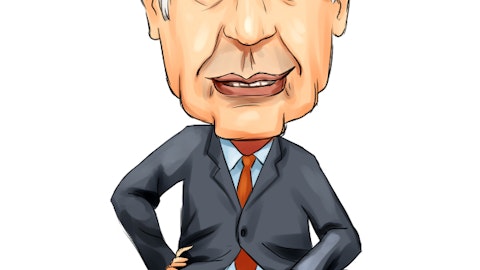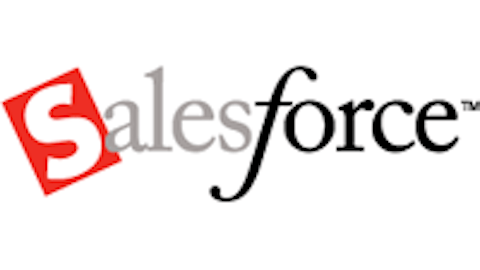
The PC to tablet transition: The end for the desktop
Ever since the debut of tablets with the iPad back in 2010, consumers have been transitioning from the clunky black boxes underneath their desks to sleek and portable tablets. Tablet sales grew 400% in 2012, while PC sales only grew 1%.
The data that these tablets process every day however, is far more than their desktop counterparts ever did. With Facebook, Twitter, movie and video instant streaming and people having a specific app for everything, it is only easier to access and create new data now than it ever was before.
Why the companies that currently make PCs will still thrive
PC makers such as Hewlett-Packard Company (NYSE:HPQ) will do just fine however. As PC sales decline, companies like Hewlett-Packard Company (NYSE:HPQ) are focusing more on their enterprise services, and on “Big Data.” Since Hewlett-Packard Company (NYSE:HPQ) announced their new strategy in their 2012 annual report, the stock has risen steadily, up 80% from the start of 2013. Before Hewlett-Packard Company (NYSE:HPQ) restructured their business model to focus on data processing, the stock fell 71% between 2011 and 2013, the dawn of the tablet age.
The uptick at the beginning of 2013 after the steady downfall shows already how HP’s new business model will reap benefits in the future.
How they will thrive
There are over 2.5 billion internet users, and 634 million websites that have to serve content to those users constantly and continually. There are also millions of apps that request and send data that is sent over the internet. With more and more devices such as smartphones being sold every year, there is only going to be more data going through the internet as everybody is now connected to everyone else. All of this data is sent through the internet and either stored or processed by servers.
As more and more data is being processed and stored, more and more servers will be needed. And with an established foothold in the server market, HP, IBM, and Dell Inc. (NASDAQ:DELL) have recognized that this is a market that they can now dominate.
Hewlett-Packard Company (NYSE:HPQ) holds the number two position in sales for servers in 2012 with around 30% of the revenue share, with International Business Machines Corp. (NYSE:IBM) holding the first spot and Dell Inc. (NASDAQ:DELL) in third (IDC Worldwide Quarterly Server Tracker).
Is IBM, HP, or Dell the better stock?
HP’s proprietary blade system will help to bring them to the top of the enterprise market. Their thin client servers are perfect for small and medium businesses, and are reasonably priced for today’s small budgets.
The real game changer though is the release of HP’s new Moonshot system. The Moonshot system uses 89% less energy, 80% less space, and costs 77% less to buy and run then comparable International Business Machines Corp. (NYSE:IBM) and Dell Inc. (NASDAQ:DELL) models. This could potentially revolutionize the server market and cause both IBM and Dell Inc. (NASDAQ:DELL) to attempt copying this idea for their own uses.
However, both IBM and Hewlett-Packard Company (NYSE:HPQ) saw a decrease in revenue from 2011 to 2012 of 4.3% and 7.5%, respectively. Dell Inc. (NASDAQ:DELL) saw an increase of 4.5% in that same time period. In 2012 these three companies held 75% of the market share for servers, meaning that any dip in server sales as a whole could significantly affect any of these companies.
HP can avoid this dip more than the other companies can, though. Because of their broad portfolio of products and their solid performance in each of their product sectors, they can compensate any loss in server sales with a bolster in sales in any one of their seven complete product sectors (ranging from personal to enterprise products) that they are involved in. Although it is very unlikely that server sales will ever decrease in the coming years, if they do HP will have the ability to withstand the losses due to their involvement in other markets.
So while it would be good to invest in any of these three IT companies, HP offers investors the safest choice because of their ability to compensate any loss in server sales with other products, which neither IBM or Dell Inc. (NASDAQ:DELL) can do.
How the Moonshot system will benefit HP
The Moonshot system is definitely going to define the way servers are looked at as more and more data is processed through data centers. The more servers that can fit into current data centers and use less energy to run and cool, the better. With HP pioneering this new initiative in the server market, they will undoubtedly gain a larger foothold and help to boost sales, and ultimately profits and stock prices.
Learn more about the new HP Moonshot system:
In conclusion
Any of these companies should be a viable option for the next few years. Data use is only going to increase, and that is only going to cause a demand for more servers. Here are some statistics for the companies enterprise segments:
HP saw its sales from servers place fourth among all of its product categories with a 16% share of all income, behind personal systems (PCs), printing, and services. HP has a strong foothold in all of these markets, and as their server market will inevitably grow, it can only help to make the company even stronger. HP recorded $20 billion in server-sales revenue last year.
IBM’s Systems and Technology segment held 32% of the revenue share in 2012. As IBM expands its offerings in other categories such as Global Business Services consulting, they can sell vast amounts of servers and software solutions to large companies. IBM recorded $17.6 billion in server-sales revenue last year.
Dell reported that their Enterprise Systems segment generated 30% of the company’s revenue in 2012. If Dell continues to perform well in all of their segments, then they can very well see a rise in share price. Dell recorded $18.6 billion in server-sales revenue last year.
Investing in these IT companies is a solid choice. Investing in just one may be risky if they lose out to another of the “big three”, so buying shares of each one could minimize risk while taking complete advantage of each company as they grow. As always, continue to analyze each company to decide which one(s) are best for you. Remember, these companies are at the top of the charts in not only server sales, but almost every category they compete in. As the world becomes more reliant on the products that these companies make, HP, IBM, and Dell can all flourish.
The article Big Data Pays originally appeared on Fool.com and is written by Nicholas Lusskin.
Nicholas Lusskin owns shares of International Business Machines (NYSE:IBM) and Hewlett-Packard (NYSE:HPQ). The Motley Fool owns shares of International Business Machines. Nicholas is a member of The Motley Fool Blog Network — entries represent the personal opinion of the blogger and are not formally edited.
Copyright © 1995 – 2013 The Motley Fool, LLC. All rights reserved. The Motley Fool has a disclosure policy.





